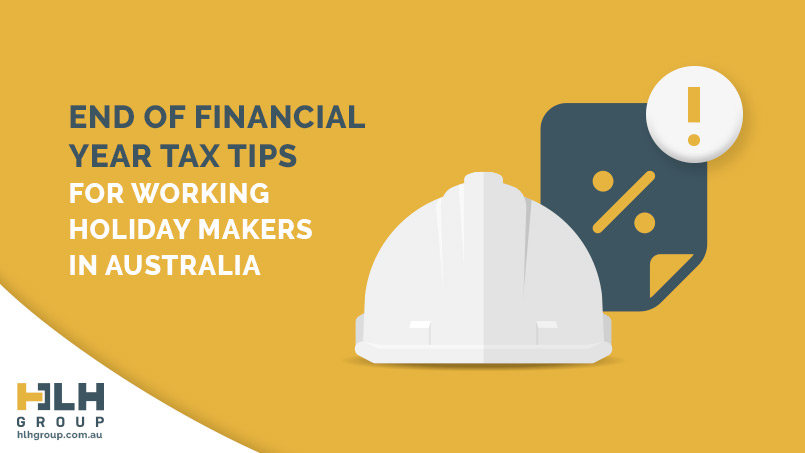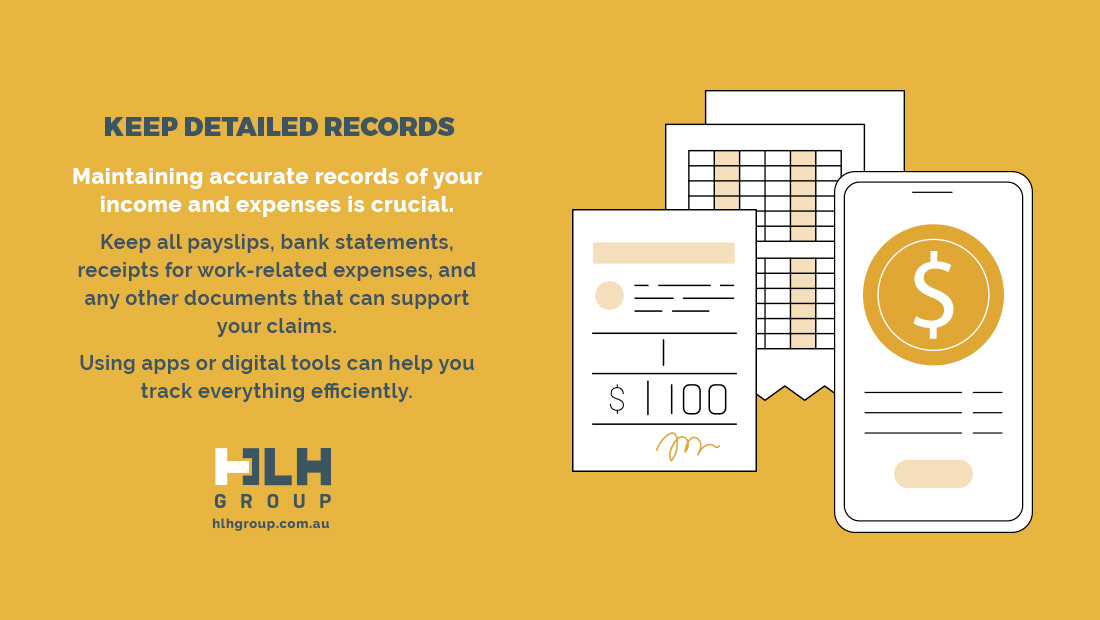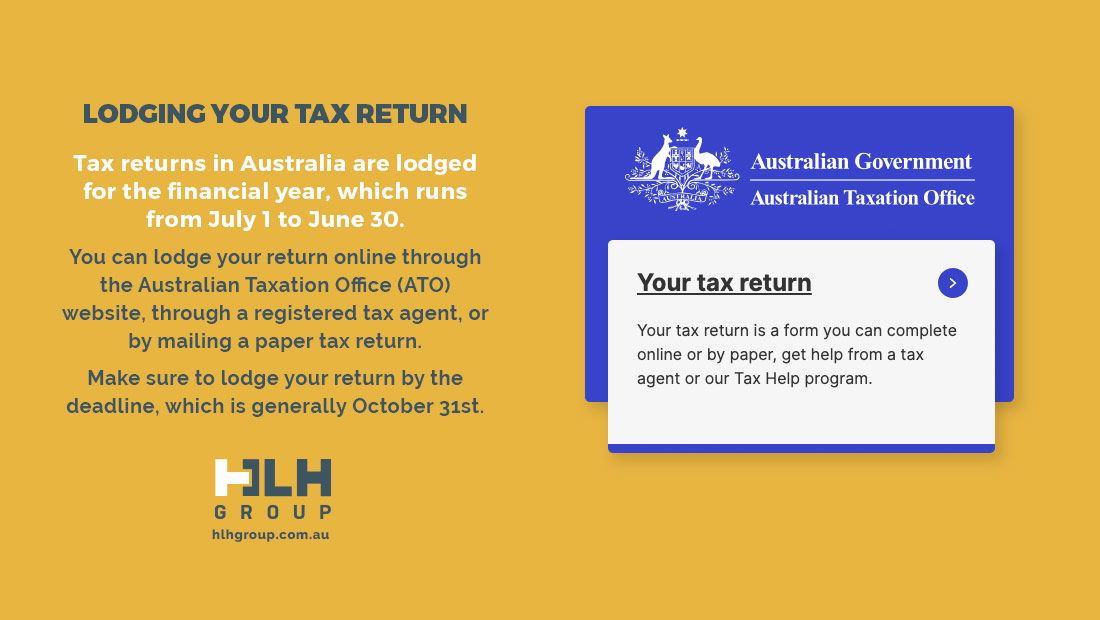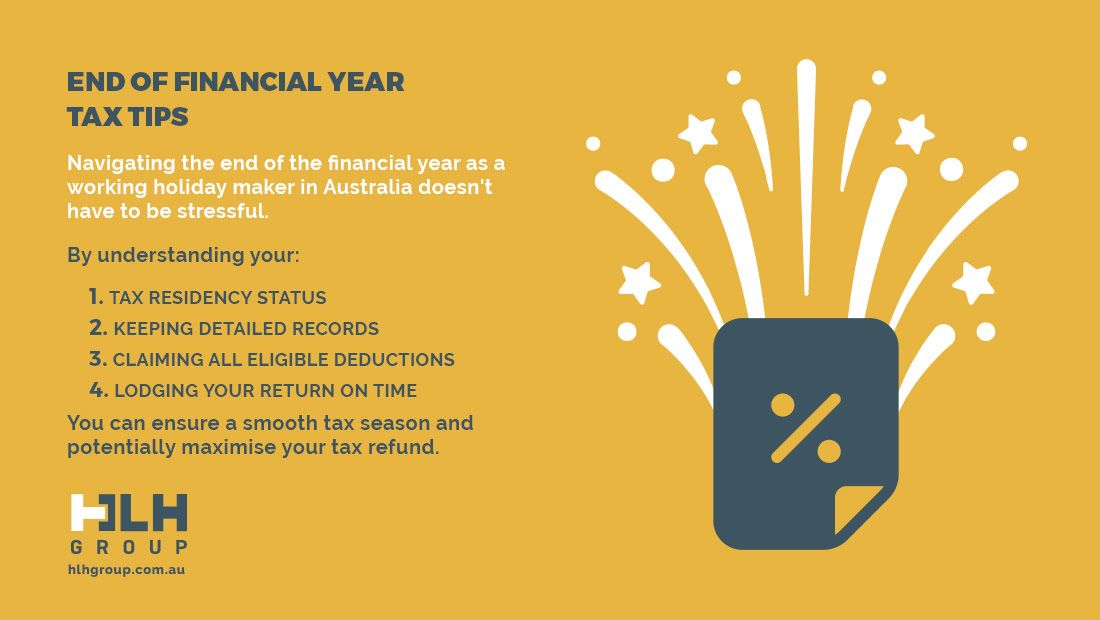
02 Jul End of Financial Year Tax Tips for Working Holiday Makers in Australia
As the end of the financial year approaches, it’s time for working holiday makers in Australia to get their tax affairs in order. Navigating the Australian tax system can be a bit daunting, but with these handy tips, you’ll be well-prepared to maximise your return and stay compliant. Here’s what you need to know.
1. Understand Your Tax Residency Status
Your tax obligations in Australia depend on whether you are considered a resident or non-resident for tax purposes. For working holiday makers on visa subclass 417 or 462, the Australian Taxation Office (ATO) has a specific tax rate. Here’s a breakdown of the tax rates for working holiday makers for the 2023-2024 financial year:
Flat Rate for Low Incomes: For the first $45,000 of your income, you are taxed at a flat rate of 15%. This is significantly lower than the rates for Australian residents on similar incomes.
Higher Incomes: For income between $45,001 and $120,000, the tax rate increases to 32.5%. Any income above $120,000 is taxed at progressively higher rates. You may need to inform your employer if you have reached the threshold.
2. Keep Detailed Records
Maintaining accurate records of your income and expenses is crucial. Keep all payslips, bank statements, receipts for work-related expenses, and any other documents that can support your claims. Using apps or digital tools can help you track everything efficiently.

3. Claim Deductions
You may be entitled to claim deductions for certain work-related expenses, which can reduce your taxable income. Common deductions include:
- Work-related travel expenses
- Uniforms and protective clothing like PPE
- Self-education expenses
- Tools and equipment needed for your job
Ensure that you have receipts or other documentation to support your claims.
4. Superannuation Contributions
If your employer has made superannuation contributions on your behalf, you may be eligible to claim these when you leave Australia. This is known as a Departing Australia Superannuation Payment (DASP). Keep track of your superannuation details and the contributions made.
5. Lodging Your Tax Return
Tax returns in Australia are lodged for the financial year, which runs from July 1 to June 30. You can lodge your return online through the Australian Taxation Office (ATO) website using MyTax, through a registered tax agent, or by mailing a paper tax return. Make sure to lodge your return by the deadline, which is generally October 31st.

6. Report All Income
Ensure that you report all sources of income, including:
- Employment income
- Interest from bank accounts
- Any other income earned in Australia
Failure to report all income can result in penalties and interest charges.
7. Seek Professional Advice
If you’re unsure about any aspect of your tax obligations, consider seeking advice from a registered tax agent or accountant. They can provide personalised advice and ensure that your tax return is accurate and maximised for any potential refunds.
8. Beware of Scams
The end of the financial year is a prime time for tax-related scams. Be wary of any unsolicited communications claiming to be from the ATO and never provide personal information over the phone or via email unless you are certain of the recipient’s identity.

End of Financial Year Tax Tips
Navigating the end of the financial year as a working holiday maker in Australia doesn’t have to be stressful. By understanding your tax residency status, keeping detailed records, claiming all eligible deductions, and lodging your return on time, you can ensure a smooth tax season and potentially maximise your tax refund. If in doubt, professional accounting advice can provide peace of mind and help you make the most of your working holiday experience Down Under.
Please note these are just helpful tips, please consult a professional for more information!
Happy tax time, and enjoy your stay in Australia!




No Comments